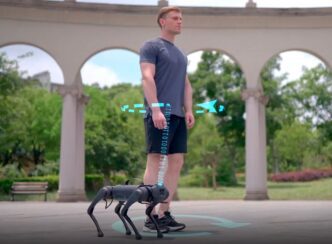Microsoft is taking a bold step forward in cybersecurity by using artificial intelligence to uncover serious flaws in widely-used open-source bootloaders. Through its Security Copilot tool, the tech giant has discovered 20 critical vulnerabilities in bootloaders like GRUB2, U-Boot, and Barebox, posing significant risks to embedded and IoT devices running UEFI Secure Boot.
This development highlights how AI is transforming vulnerability discovery, making it faster, more accurate, and far less labor-intensive.
AI Reveals Hidden Security Flaws in Linux and Embedded Bootloaders
Microsoft’s threat intelligence team, armed with Security Copilot, zeroed in on open-source bootloaders at the heart of many secure boot systems. GRUB2, a Linux bootloader, along with U-Boot and Barebox—commonly used in embedded platforms—were found to contain multiple critical flaws.
These vulnerabilities could potentially allow hackers to inject and execute arbitrary code during the boot process, effectively bypassing Secure Boot protections.
Security Copilot Reduces Research Time and Pinpoints Exploitable Bugs
What once took researchers days to manually analyze is now being accomplished in a fraction of the time, thanks to AI. Microsoft’s team employed a mix of static analysis, fuzz testing, and AI-guided code reviews. This combination allowed them to dig deep into weak spots like filesystem parsing, a frequent source of memory safety issues in bootloaders.
One of the more alarming discoveries was an integer overflow vulnerability in GRUB2. This flaw could allow an attacker to override critical boot-time protections, opening the door to stealthy bootkit installations and full system compromise.
Bootkits Could Give Hackers Total Device Control
Bootkits are among the most dangerous types of malware because they can survive OS reinstalls and even hard drive replacements. Microsoft warns that successful exploitation of these bootloader flaws could let attackers take over the entire boot process. From there, they could install persistent malware, disable security tools, and infiltrate other connected devices.
The implications go beyond a single machine. A compromised device can act as a launchpad for wider attacks across networks, putting entire organizations at risk.
Microsoft Highlights AI’s Role in Identifying Similar Vulnerability Patterns
Security Copilot didn’t just help find one vulnerability—it helped spot similar code patterns across other bootloaders as well. This led researchers to confirm additional flaws in both U-Boot and Barebox, which share some code with GRUB2.
By streamlining the vulnerability discovery workflow, Microsoft was able to perform deeper analysis, faster. The company pointed to this achievement as a clear demonstration of how AI tools are reshaping threat detection.
Vulnerability Fixes Already Released for GRUB2, U-Boot, and Barebox
In a proactive move, Microsoft collaborated with the maintainers of these bootloaders to release patches. GRUB2 maintainers issued security updates in mid-February, while U-Boot and Barebox updates followed on February 19, 2025.
Although exploiting vulnerabilities in U-Boot and Barebox may require physical access, the risks tied to GRUB2 are more pressing. Attackers could exploit these flaws remotely to bypass Secure Boot and potentially disable other security mechanisms like BitLocker.
AI-Driven Cybersecurity Is Just Getting Started
Microsoft emphasized that these findings underscore the power of AI in cybersecurity. Security Copilot enabled faster discovery, clearer code auditing, and broader vulnerability coverage—setting a new benchmark for how security research is done.
As more organizations adopt AI in their threat detection strategies, tools like Copilot could become essential for staying ahead of increasingly complex cyber threats.













